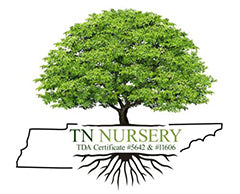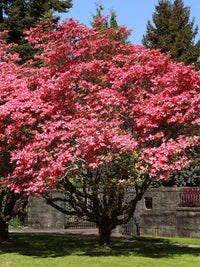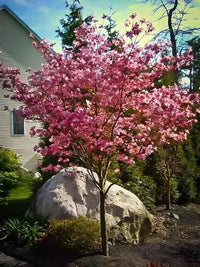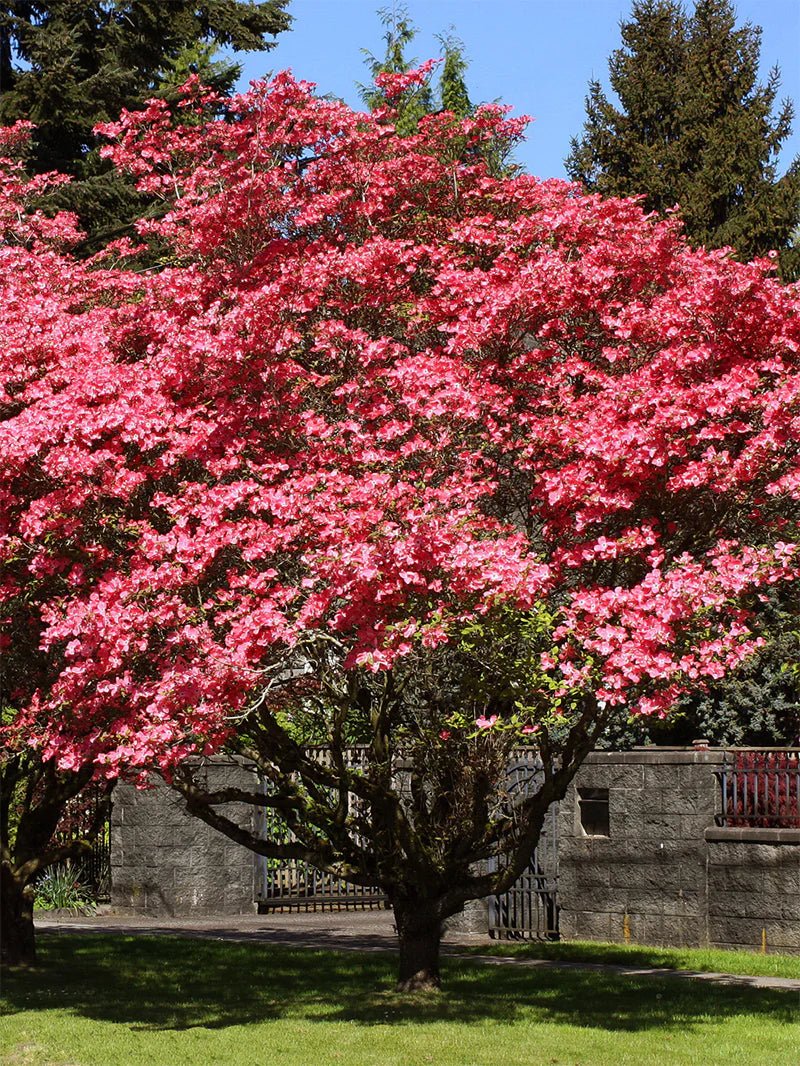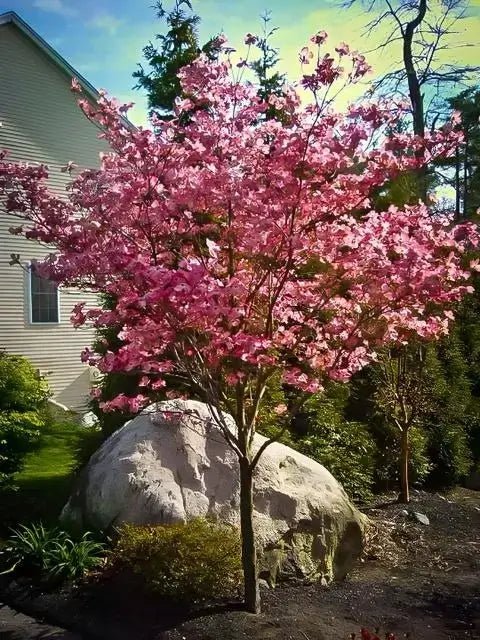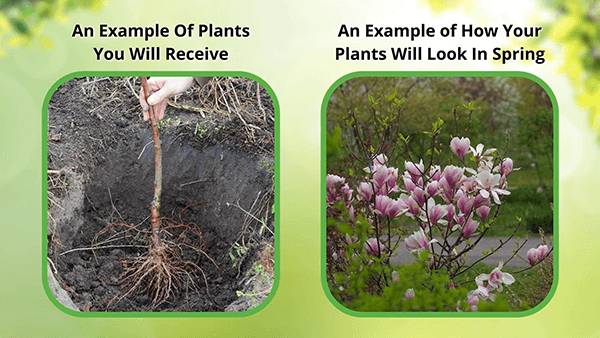The Cherokee Chief Dogwood Tree Is Perfect To Use In Landscaping
Cherokee Chief Dogwood, also known as Cornus florida 'Rubra,' is a small deciduous tree native to eastern North America. It typically grows to a height of 20-30 feet and has a spread of 25-30 feet. The tree is prized for its showy pink or red flowers that bloom in early Spring 2024, followed by bright red fruit that ripens in the Fall (End of October).
The Tree is relatively easy to grow and prefers moist, well-drained soil in partial shade to full sun. It can live in various soil types and pH levels but requires adequate moisture to thrive. Pruning is usually only necessary to remove dead or damaged wood or to shape the tree.
Besides its ornamental value, the Tree is also used in landscaping as a screen or hedge or as an accent tree in small yards or gardens. It is also famous for wildlife gardens, as the fruit is a favorite of birds and other small mammals.
History Of The Cherokee Chief Dogwood Tree
The flowering tree is aboriginal to North America and known for its unique blossoms. The Cherokee people have a solid cultural and historical connection to the land and the natural world, and the Dogwood tree holds special significance in folklore and traditions.
The tree is often associated with strength and resilience. The tree was once tall and robust, but it was cut down and used to make the cross on which Jesus Christ was crucified. In response, God transformed the tree so that it would never grow tall and strong again, but instead would always grow as a small and delicate tree, with four white petals symbolizing the four points of the cross, a red center representing the blood of Christ, and each petal tipped with a dent meaning the nails that were used in the crucifixion.
Buy Cherokee Chief Dogwood Tree Online
It is among the most beautiful Native American flowering trees. The classic four-petal flowers are bright white and will attract birds, butterflies, and the human eye. They are slow to medium-growing trees that will mature to a height of twenty-five feet and are multi-stemmed deciduous with many flower-filled branches.
When planting, they must be spaced twenty-five to thirty feet apart and require a pretty sunny spot, though they can handle a little shade. The Cherokee Princess does well in a cold zone five and warmer and can tolerate a heat zone up to nine, making them one of the hardier flowering trees. They will thrive better with good mulch around the root zone in winter.
They retain their beauty all year round with an appealing light-colored bark. They will produce abundant white flowers in the spring, and the leaves are a vibrant green throughout the summer. When the cooler months of fall come around, they will have bright red ornamental berries and deep crimson to purple leaves. The tree grows in a slight pyramid shape with broader horizontal growth and a flatter top, making it a good shade tree that will feel like sitting in a fairy forest during the blooming months.
The ground clearance is about four feet, so little ones will love playing under the low-lying branches. This princess will look fabulous against a forest or woodland backdrop as this is their native habitat but are equally stunning as a centerpiece to a backyard landscape. Though this little beauty is a hardy tree, she will need rich, well-drained, acidic soil and adequate precipitation. The tree would be an excellent landscaping choice, with a larger space to show off in splendor and beauty.
